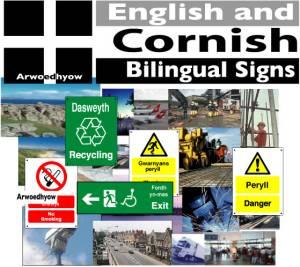
The third periodical report on the European Charter for Regional and Minority Languages has been released by the UK Government this week. The report sets out to the Council of Europe
The third periodical report on the European Charter for Regional and Minority Languages has been released by the UK Government this week.
The report sets out to the Council of Europe how the UK Government is meeting the guidelines of the Charter and highlights developments that have taken place with regard to the respective regional and minority languages within the state. The report also provides useful background information such as historical developments, the demographic situation in the different countries/provinces and information on the constitutional and administrative structure of the state.
The report points out that the Charter has now been extended to the Isle of Man, a Dependency of the British Crown, which is outside of the UK and the EU and acknowledges that the Manx Gaelic language is experiencing resurgence. Other languages detailed in the report are Cornish, Irish and Ulster Scots, Scots and Scottish Gaelic and Welsh.
From the report it is plain to see that the Welsh language is by far the stronger of any of the Celtic languages, in that there is much more wide ranging government legislation on the topic and language related activity taking place. The least supported language however is clearly Cornish, which has no specific legislation pertaining to it and very little funding. Unsurprisingly, no mention is made in the report about Cornwall\'s distinct constitutional status.
With regard to Scottish Gaelic, the report points out that despite an increase in the number of public sector and government bodies at all levels, the position of the language \"remains extremely fragile\" and that \"further concerted efforts are required\" (page 63). Attention is also drawn in the report to the creation of a resident Manx Gaelic writer/Resource Development Officer - attached to Bunscoill Ghaelgagh - whose job it will be to specifically produce resources for children in the language (page 70). Irish and Scottish Gaelic are unfortunately lumped with Ulster Scots and Scots respectively in the report and as such they are not given due treatment, as is the case in reality.
The report is an extensive 364 page document, but nevertheless makes fairly light reading. It shows that the UK Government is plodding along doing its job, which is more than can be said about the French government, who haven\'t even ratified the Charter.
The second periodical report on the European Charter for Regional and Minority Languages was published in March 2007.
The full text of the third report can be found at the link below:
http://www.coe.int/t/dg4/education/minlang/Report/PeriodicalReports/UKPR3_en.pdfJ B Moffatt Director of Information Celtic League
29/05/09
 The Celtic League has branches in the six Celtic Countries. It works to promote cooperation between these countries and campaigns on a broad range of political, cultural and environmental matters. It highlights human rights abuse, monitors all military activity and focuses on socio-economic issues.
TEL (UK) 01624 877918
MOBILE (UK)07624 491609
(voir le site)
The Celtic League has branches in the six Celtic Countries. It works to promote cooperation between these countries and campaigns on a broad range of political, cultural and environmental matters. It highlights human rights abuse, monitors all military activity and focuses on socio-economic issues.
TEL (UK) 01624 877918
MOBILE (UK)07624 491609
(voir le site)

Commentaires (0)
Aucun commentaire pour le moment. Soyez le premier à réagir !